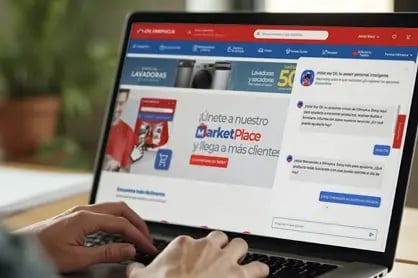How Credit Unions can Reach Underserved Communities Through Digital Innovation
Access to financial services remains a critical challenge for underserved communities where economic inequalities and unbanked populations create significant barriers to financial inclusion. Credit unions have long played a vital role in bridging this gap, yet they increasingly struggle to fulfill this mission. Traditional banking models often fail to meet the unique needs of these communities, positioning credit unions as key players in reshaping financial access and driving meaningful change.
We at Pragma are dedicated to facilitating this evolutionary process. As a custom software development partner with vast experience in the field, we have teamed up with innovators like Nequi, the first digital bank in Colombia, to not just broaden accessibility but also to change the meaning of banking for underserved communities. The achievement of Nequi provides credit unions with a practical way to cope with their major problems and, at the same time, create outreach to such communities that have been usually neglected by traditional financial institutions.
The Opportunity: Underserved Communities Require Customized Solutions
The U.S. communities that are often systematically excluded from financial systems include low-wage earners, geographically isolated citizens, and immigrant workers. These groups encounter hindrances such as:
- Lack of Trust in Traditional Banking Systems
Many unbanked and underbanked individuals avoid traditional banks due to past negative experiences, such as hidden fees, unexpected overdraft charges, or rejections based on strict credit criteria. A history of predatory financial practices has further eroded trust, making these individuals more likely to turn to alternative financial services that, despite higher costs, feel more accessible. This mistrust is reflected in the numbers: according to the FDIC (Federal Deposit Insurance Corporation), 5.4% of U.S. households are unbanked and 16% rely on alternative credit.
- High Fees and Penalties That Disproportionately Impact Low-Income Individuals
The costs associated with maintaining a bank account—such as monthly maintenance fees, overdraft charges, and ATM withdrawal fees—pose significant financial burdens on those who live paycheck to paycheck. For many low-income individuals, these costs make traditional banking impractical, pushing them toward check-cashing services and payday lenders that charge exorbitant interest rates, trapping them in cycles of debt.
- Strict Requirements for Credit, Loans, or Basic Accounts
Many financial institutions require extensive documentation, high credit scores, or substantial minimum deposits to open accounts or apply for loans. This disproportionately affects immigrants, young adults, and those with non-traditional employment who may lack the necessary credit history or formal financial records. As a result, these individuals are denied access to essential financial tools that could help them build stability and wealth.
- Limited Physical Access to Bank Branches, Especially in Rural Areas
In many parts of the U.S., particularly in rural and low-income urban areas, traditional banks have reduced their physical presence, creating "bank deserts" where residents must travel long distances to access basic financial services. While digital banking solutions offer an alternative, many of the affected individuals lack reliable internet access or the digital literacy required to navigate online financial tools effectively.
These issues are similar to those encountered by marginalized populations in Colombia, where Pragma worked with Bancolombia (Colombia’s largest bank) to implement Nequi, the first digital-only financial platform specifically curated to eliminate most of the traditional accessibility barriers. Credit unions can benefit from this model since Nequi's success shows the capability to introduce configured, user-centered digital solutions to reach unexploited segments.
Case Study: The Nequi Experience
Challenge
In 2016, before the launch of Nequi, 40% of Colombians were outside the formal financial system. Key barriers included high management fees, the lack of physical bank branches in many rural areas, and extensive documentation requirements for new customers. Rural farmers, informal merchants, and younger consumers often perceived traditional banks as inaccessible and risky, particularly due to stringent lending policies, limited financial education, and a lack of tailored solutions that addressed their specific economic realities.
Solution
Pragma partnered with Bancolombia to build and roll out Nequi, a 100% digital financial solution that broke the mold of traditional banking by offering:
- Quick Account Sign-Up: A mobile onboarding experience that allows anyone with a smartphone to register and use the platform within minutes, with no fees or restrictive requirements.
- Inclusive Microlending Options: Unlike conventional loans that required extensive credit history, Nequi used cloud-based analytics and machine learning models to pre-approve loans for individuals with little to no credit experience.
- User-Friendly Tools: Intuitive features like “Bolsillos” for savings, budgeting tools, and instant money transfers empowered first-time account holders to manage their finances effectively.
Impact
By 2024, Nequi became the primary account for 2.1 million people, proving its ability to serve as a financial lifeline for communities historically excluded from economic systems. Moreover:
- Nequi has grown from 0 to 22 million users in just nine years.
- 25% of loans approved were granted to individuals with no prior credit history.
- 98% of transactions could be completed digitally, facilitating access regardless of location.
Inclusive design principles helped users from rural and urban areas alike adopt the tool with ease.
These results weren’t just numbers—they marked a change in how underserved populations perceived and interacted with digital financial products.
Applying Nequi’s Success Model to Credit Unions
Credit unions, particularly those in North Carolina and Florida, already share core values with Nequi, including a focus on community, accessibility, and financial empowerment. However, successful transformation requires tailored solutions. Here’s how:
1. Digital First, Fee Free
Nequi’s success reinforces the importance of simplifying financial access. Credit unions can reduce barriers by adopting mobile-first banking products with zero overhead fees for low-income users. Solutions like:
- Quick and paperless account registration for streamlined onboarding.
- Transparent fee structures for everything from debit cards to loan approvals.
- Custom mobile apps that allow users to deposit, save, and borrow instantly
These approaches eliminate the high-friction processes that continue to exclude unbanked populations in many underserved areas.
2. Make Credit Accessible
One of Nequi’s most impactful innovations was its use of technology to approve credit for users with no financial history. In the U.S., many underserved individuals—such as first-generation immigrants or freelance workers—struggle with similar challenges.
Credit unions can deploy:
- Custom algorithms are built with tools like AWS SageMaker to evaluate credit risks beyond traditional metrics.
- Microlending models with flexible repayment terms, tailored to users in vulnerable economic conditions.
This credit democratization not only expands financial services but also builds long-term trust in credit unions as lenders and partners in financial growth.
3. Hyper-Localized Solutions
Credit Unions can benefit by creating hyper-local strategies tailored to their geographic regions:
- Rural areas in North Carolina may require solutions aligned with agricultural cycles or seasonal earnings.
- Urban centers in Florida may need bilingual apps to support immigrant communities.
If they can align solutions with the local needs, credit unions can establish themselves further as community-focused financial organizations.
The Role of Technology in Financial Transformation
At Pragma, we believe technology is the driving force behind financial transformation. For 29 years, we have developed high-impact solutions using custom software development, cloud architectures, and user-centered digital design to help financial institutions expand their reach and improve customer experiences.
Nequi is a prime example of this approach in action. By leveraging a cloud-native architecture capable of handling 339 million transactions per month, Nequi eliminated the need for physical branches while maintaining the flexibility to rapidly adapt to user demands. This enabled:
- The rapid launch of mobile and web apps, ensuring accessibility for all users.
- Data-driven insights to continuously optimize user engagement and financial behaviors.
- Seamless integrations with services like PayPal and QR-based payments, enhancing payment flexibility.
How Credit Unions Can Replicate This Model
Credit unions, which play a critical role in promoting financial inclusion, can modernize their services and better serve underserved communities. At Pragma, we help financial institutions:
- Create seamless digital experiences that attract and retain members.
- Automate and optimize critical processes using GenAI to enhance efficiency.
- Unlock new business opportunities through Open Finance, Instant Payments, APIs, and integrations.
- Modernize and refactor applications to ensure system reliability and scalability.
- Leverage AI, ML, and data analytics to build personalized, long-term member relationships.
- Lead the market through innovation, building distinctive products, services, and channels that set them apart.
Why Pragma: A Trusted Partner for Credit Union Transformation
Pragma stands out as a strategic ally for Credit Unions navigating the complexities of digital transformation. Our nearshore model ensures:
- Cost Efficiency: High-quality solutions comparable to Big Tech but tailored to specific challenges.
- Experience Across IT and Finance: Nequi’s success is just one of many financial inclusion projects we’ve delivered. Check here other success stories.
- Scalable, Collaborative Teams: Matching credit unions with skilled developers, designers, and technology experts keenly focused on meeting their goals.
Our mission is to help you expand access to underserved communities, just as we did with Nequi.
Closing Thoughts
For Credit Unions, the future of financial services lies in embracing technology that breaks down barriers rather than reinforcing them. Nequi’s story shows that investing in tailored digital experiences can revolutionize how underserved populations interact with money, trust financial institutions, and improve their lives.
Ready to bring financial inclusion where it’s needed most?
Share this
You May Also Like
These Related Stories

Olímpica revolutionizes its E-commerce with Pragma's AI and personalization strategy

We did it! Pragma became an AWS Gen AI Competency Partner

Case study: Bank automates high-risk compliance with Pragma's GenAI
Subscribe to
Pragma Blog
You will receive a monthly selection of our content on Digital Transformation.

